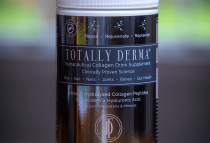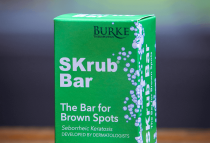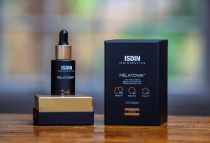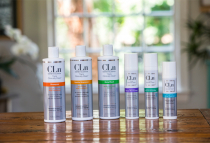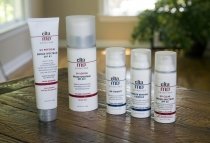
Eczema
My visit with this office was amazing. They were very competent, very nice and very knowledgeable. I will definitely be back...
M.R.
Expertise
Eczema or dermatitis is an itchy rash. There are different types of eczema, such as irritant, allergic, stasis, nummular and atopic, to name a few. Eczema can affect people of any age. Treating eczema is multifactorial and involves identifying the eczema, eliminating exacerbating factors, and treating the rash and itch. Improving your eczema starts with making an appointment with one of our physicians or physician assistant.
Patch testing can be helpful in certain types of eczema. Patch testing is used to identify allergens that may be causing or contributing to dermatitis or contact dermatitis. Generally patch testing is used when a rash does not resolve with simple measures, persists despite treatment, flares unexpectedly, or involves a specific area that suggests contact dermatitis. Allergens are chemicals found in makeups, creams, topical medications, leather, clothing, shoes, work items, plants etc. that when in contact with the skin will cause rash or contact dermatitis for some individuals.
A common example is a nickel allergy. Nickel present in earrings and belt buckles can cause a chronic recurring rash on the belly or earlobe that will not resolve until nickel is avoided. Other common allergens that can cause dermatitis include fragrance, preservatives, rubber, leather, and botanicals. These agents can be more challenging to avoid.
The two types of allergy testing
There are two types of allergy testing: prick and patch. Prick testing is generally done by an allergist. It consists of pricking the skin and looking for a hive 20 minutes later. This type of testing is looking for allergens that cause or exacerbate hives, rhinitis or asthma symptoms when inhaled or ingested like cedar or peanuts. Patch testing is entirely different. Patch testing is looking at allergens that cause rash when in contact with the skin like nickel. Prick testing and Patch testing look at entirely different allergens.
Patch testing can be helpful for anyone with chronic dermatitis of unclear etiology. It is generally covered by insurance. Our office will confirm insurance coverage before scheduling your patch testing.

When you visit the office the physician will consult with you about your dermatitis to determine if patch testing is appropriate. If patch testing is appropriate you will be scheduled on a Monday to have the patches placed on your back. At Dermatology San Antonio we use the North American Standard series to patch test which consists of a 70 of the most common allergens. The allergens are in Vaseline or water and are placed on the back with stickers (patches). The patches remain in place for two days. You return on Wednesday to have the patches removed and to look for any reaction to the allergens. Lastly, you are seen two days later to read the test again. Rather than looking for hives in response to the allergen, we are looking for dermatitis. This can take days to develop, thus the Wednesday and Friday visit after the patches are placed on Monday.
“At Dermatology San Antonio we use the North American Standard series to patch test which consists of a 70 of the most common allergens.”
If you test positive to any allergens you will be counseled about how to avoid them and where they are found. For some people avoidance can lead to resolution of their dermatitis. For other patients, their dermatitis may improve but not resolve. There is no allergen therapy or desensitization therapy like there is with prick testing. For allergens that cause contact dermatitis there is simply awareness and avoidance. There are some patients who will have a negative test and for some patients we identify allergens that are not contributing to their current dermatitis. Patch testing does not determine if your rash is due to a medication you are ingesting.
Examples of patients that have benefited from patch testing:
- A patient with chronic eyelid dermatitis tests positive to components of nail polish and artificial nails. Her eyelid dermatitis resolves with avoidance.
- A patient with chronic dermatitis on the thighs tests positive to nickel. He stops putting his cellphone and keys in his pocket and the dermatitis resolves.
- A patient with facial dermatitis tests positive to a preservative found in cosmetics. Her facial dermatitis resolves with avoidance.
- A patient with chronic dermatitis on his lower legs tests positive to an allergen in leather. His dermatitis dramatically improves with switching to a different type of boot.
- A patient with chronic hand dermatitis tests positive to a preservative used in the hand soap at work. His hands improve with avoidance.
- A patient with generalized dermatitis tests positive to fragrance and preservatives. Her dermatitis improves with avoidance.
- A mom with hand dermatitis test positive to the preservative in wet wipes. Her hands improve with avoidance.
If you have dermatitis that has not responded to treatment, is recurrent, or chronic and you are interested in patch testing please call our office for a consultation. San Antonio Dermatology specializes in skin and allergy testing and we would be happy to help you feel your best.
Care Credit Application
We accept Care Credit. Want to find out if you qualify?
Check Your Eligibility




